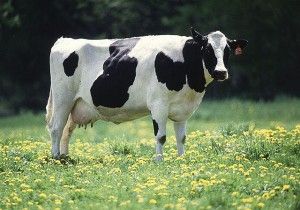Assembly Carves Up Organic Farming
By KATY GRIMES
California is still growing government, but in an unlikely place. The Assembly now has its own organic legislative committee called the Assembly Select Committee on Sustainable and Organic Agriculture, which will “seek to improve the understanding and availability of information on the production of sustainable and organic agriculture products in California.”
With Democratic Assemblywoman Mariko Yamada of Davis named chairwoman by Assembly Speaker John Perez, last week the committee held its first hearing. But the purpose of the hearing was unclear.
People seem to love to talk about organic and sustainable farming, and farmers’ markets have never been more popular, but is a full legislative committee needed to talk about it also?
At the farmers’ markets, not all of the produce is organic. And being a “sustainable” farmer is something all farmers strive for anyway for cost-effectiveness, and to ensure the best and most productive uses of land.
However, recent studies in the United Kingdom have found that not all organic food is better for the environment than food grown conventionally. Some experts have found that if looked at carefully, the amount of energy required to produce these foods is often higher, and in some cases, the carbon footprint for organics is larger.
Prior to the government regulation of fertilizers and pesticides, organic food was more of a health issue. But the current level of fertilizer and pesticide regulations has made conventional farming much more safe, leaving organic farming and foods more of a lifestyle choice, with no conclusive evidence proving that it is nutritionally superior.
Sir David King, the British government’s chief scientist, said that he agreed that organic food was no safer than chemically treated food.
The study did not take into account factors such as the increased biodiversity created by organic farming or the improved landscape.
Burping Cows
The researchers even found that organic milk and dairy production is a major source of increased greenhouse gas emissions (GHGs), and causes cows to burp more.
The milk and dairy study, done by Life Cycle Assessments (LCAs) for the United Kingdom, was sponsored by the Department for Environment, Food and Rural Affairs. The report said, “There is certainly insufficient evidence available to state that organic agriculture overall would have less of an environmental impact than conventional agriculture.”
In Scientific American, science writer Christie Wilcox addressed the top myths about organic farming, including:
Myth #1 Organic food is “pesticide free.” Wilcox explained, “Certified organic farms have to use pesticides from natural sources, rather than man-made — but those aren’t necessarily any less dangerous or harmful. Large organic farms still spray crops with pesticides and fungicides. And they have to use more to get the same effect.”
Myth #2: Organic food is better for you. “Even if you’re getting your produce from a totally pesticide-free farm, that doesn’t mean it’s free of pathogens. And there’s no evidence that organic food is any more nutritious or beneficial than conventionally farmed food.”
Myth #3: It’s better for the planet. “Organic farming produces less food per acre, so it’s not an efficient use of land. And Wilcox objects to organic farming’s resistance to genetically modified organisms, which she says could help improve farming practices and mitigate world hunger.”
And Wilcox addressed one additional myth, that consumers must choose between conventional or organic foods. Wilcox said that even if you’re disinclined to give credence to skepticism about organic farming, it’s worth checking out this heavily sourced article. Even if you’re not convinced, you’ll be informed and also maybe a little disgusted.
Wilcox states that she is not anti-organic farming. She said that she just wants to make sure that people undertstand that natural does not mean that food is automatically non-toxic or safe.
Sustainable?
As for organic and sustainable, it’s a fantastic economic ploy, according to Wilcox. “In 2010, a mere eight years after USDA’s regulations officially went into effect, organic foods and beverages made $26.7 billion” in the United States. In the past year or two, certified organic sales have jumped to about $52 billion worldwide despite the fact that organic foods cost up to three times as much as those produced by conventional methods.”
It will be interesting to see what the real purpose of this committee is, how many staff positions are created; and if it has anything to do with statewide water restrictions on farmers, or the disappearing agriculture industry in the state.
Organic farming is already fabulously nourished and economically sustainable. But it is hard not to wonder if something is going on in the Legislature that will threaten farming in the state even more, and if this committee was created as a cover.
Related Articles
Senate committee OKs increased energy regulation
A bill that ratchets up energy restrictions in California passed a Senate policy committee last week, despite concerns from business
Senate mulls hospital fee hike
August 10, 2010 By KATY GRIMES Federal stimulus money designated for California’s Medi-Cal program could be on the way to
Election Night Live Blogging
CalWatchdog will be reporting and live blogging tonight as election results come in. We’ll be at various election events and




